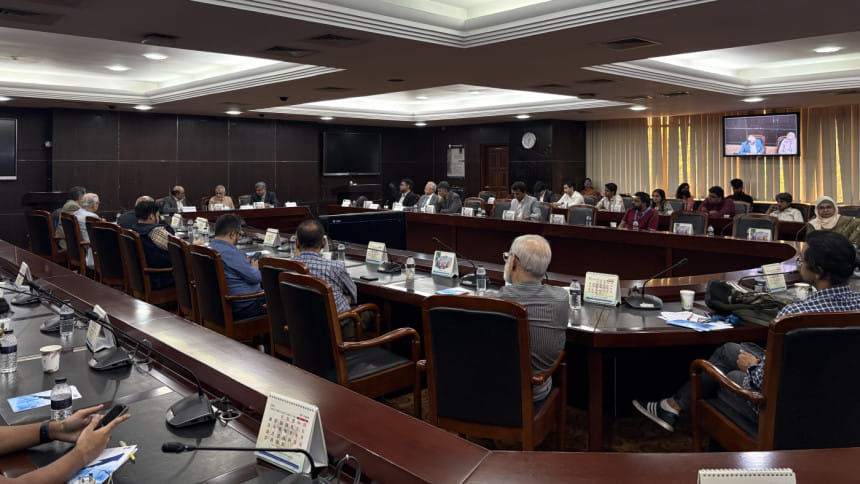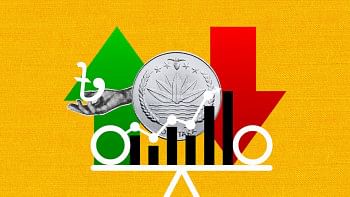Economic Research Platform (ERP) hosts seminar titled “Trade Policy Challenges in an Age of Geoeconomic Turbulence”

A seminar titled "Trade Policy Challenges in an Age of Geoeconomic Turbulence: The Bangladesh Scenario" was organised by the Economic Research Platform (ERP), along with Young Economists' Forum (YEF) as the event partner, at North South University (NSU). The event took place on April 19 and was graced by a distinguished panel of guests.
The keynote speaker of the event was Dr Zaidi Sattar, chairman of Policy Research Institute (PRI), and the Chief Guest was Anisuzzaman Chowdhury, special assistant to the Chief Advisor. Other panellists included Dr M Ismail Hossain, Professor at NSU; Dr Selim Raihan, Executive Director of SANEM; Dr Mahfuz Kabir, Research Director of BIISS; and Kamran T Rahman, President of the Metropolitan Chambers of Commerce and Industry. The chair of the event was Dr Abdul Hannan Chowdhury, a professor and Vice Chancellor of NSU. The event was moderated by Dr A K M Atiqur Rahman, a professor and Director of ERP.
The seminar constituted lectures from the panellists on several timely topics on trade policy. The trade policies of various countries in the region, including China, Vietnam, and other East Asian countries were discussed, and how these policies helped the countries grow their economies. The policies of these countries were compared with those of Bangladesh and recommendations were given about how Bangladeshi trade policy can be improved upon for the betterment of the economy. "Trade became the engine of growth, and will continue to be the engine of growth," said Dr Sattar.
Another major topic of conversation was the current instability of the world economy as a result of the tariffs being imposed by the Trump administration. Potential strategies for Bangladesh to deal with the situation were discussed. Scepticism for making deals with the Trump administration and reducing tariffs on US goods was expressed by Dr Selim Raihan, as there is no guarantee that they will reciprocate and reduce their tariffs in return. Another strategy was proposed by Dr Mahfuz Kabir, where imports from the US could be increased so that the trade surplus that Bangladesh has with the US can be decreased, which could lead the US to lower reciprocal tariffs.
Some related topics were also discussed, such as labour rights and environmental conservation. Kamran Rahman stated that these issues cannot be ignored as we strive for economic expansion and that they are yet to be addressed effectively by the government.
Finally, Anisuzzaman Chowdhury expressed concerns for the future of the world economy, stating, "We are in a situation similar to the trade wars before World War II."
The event also included a short question-and-answer session where NSU students and faculty members voiced their queries from the panellists and received their valuable insights, after which the session formally concluded.

 For all latest news, follow The Daily Star's Google News channel.
For all latest news, follow The Daily Star's Google News channel. 



Comments